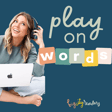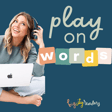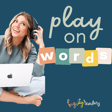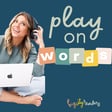
Ep. 49 How Many Words Should My Toddler Know? Speech, Reading + Milestones With Katie & Carly of @WeeTalkers
Today on the Play On Words Podcast from Big City Readers we are talking about supporting your toddler's language development and how it connects to learning to read with speech-language pathologists Katie and Carly of Wee Talkers.
We dive deep into the world of toddler speech development, reading foundations, and milestones—and what it really means when kids hit (or don’t hit) those milestones on time.
Katie and Carly share personal stories of their own children—some early readers, some needing extra help—and we have an honest conversation about why learning to read early isn’t necessarily a sign of future success. If your toddler isn’t rattling off the ABCs yet, that’s OK!
What we cover:
- How many words should my toddler know? We break down the speech milestones and when to worry (or not).
- Phonics vs. Phonological Awareness: What do these terms actually mean, and why are they key to building reading skills?
- Understanding vs. knowing words: Does your child really understand what they’re saying?
- Should you teach your child to read at home? Or let them learn in school?
- Reading intervention: The truth behind why some kids need it, and how you can support your child if they do.
- The Covid baby effect: How pandemic-born toddlers are showing delayed milestones—and how to catch up.
- How to help your child right now: Actionable steps to boost speech and reading at home, no matter where they are on the learning spectrum.
- Language and anxious toddlers (and parents): How to navigate anxiety in kids struggling with communication.
Whether your child is a late talker or already showing early signs of reading, this episode is packed with tips, insights, and a little bit of humor to help you navigate it all.
Links:
- Wee Talkers Instagram: @weetalkers
- Big City Readers Instagram: @bigcityreaders
- Phonological awareness checklist
- Language milestone checklist



